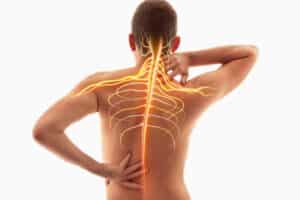
The most common cause of altered function of the spinal cord is a complete or incomplete spinal cord injury. Most injuries occur during traumatic accidents, often in car crashes or falls.
The spinal cord is responsible for transmitting messages from the brain to the rest of the body and communicating any necessary information back. When these electrical messages cannot get through or are not transmitting accurately, there may be issues with motor functions, sensory input, and even autonomic functions.
Understanding Spinal Cord Injuries and the Causes of Altered Functioning
When a neck or back injury occurs, it puts the spinal cord at risk. While many do not involve the spinal cord or its functioning, many do. This may be as minor as a temporary change in sensation or as serious as permanent paralysis from the neck down. There are three primary causes of spinal cord injuries in the United States:
Traumatic Injuries
Most traumatic spinal cord injuries occur when there is a fracture or dislocation of one or more vertebrae. While this can occur in almost any type of traumatic accident, the most common include:
-
- Auto accidents
- Motorcycle accidents
- Falls, especially in seniors or those working at an elevated height
- Acts of violence, such as stabbings and gunshot wounds
- Sports and recreation, including football and diving
Damage Related to an Injury
Sometimes even a relatively minor injury can do a lot of damage if you do not get treatment right away or if the treatment fails to prevent the damage for some reason. Over the hours and days following a back or neck injury, the tissues swell and get inflamed. This is expected, and doctors can usually limit the damage done if the patient is treated quickly after an injury.
Doctors can stop any bleeding, reduce swelling, and reduce fluid accumulation that might put pressure on your spinal cord and cause additional damage as well as altered functioning.
Damage Stemming from Disease or Degeneration
Not all spinal cord damage occurs because of a traumatic accident or other injuries. There are many disease-related causes of spinal cord impingement and damage that may lead to altered functioning. This includes:
A Spinal Cord Injury Can Alter Functioning in Many Ways
The severity of a spinal cord injury depends primarily on:
- Where the injury occurs along your spinal cord; and
- The severity of the damage done to the spinal cord
Spinal cord injuries can be complete or incomplete. In a complete injury, no more messages are transmitting beyond the level of the injury. The person has no sensory or motor functioning beyond this point. In an incomplete injury, some messages can still get through, but the damage altered the function of the spinal cord. How much it alters the function depends on the individual injury.
Depending on the severity of the injury, the person may experience any or all of the following:
- Loss of movement below the affected area, paralysis
- Loss of or altered sensation
- Limited or no bowel and bladder control
- Changes in sexual function and sensation
- Pain, “pins and needles” or stinging in areas affected by nerve damage
- Difficulty breathing on their own
- Difficulty talking with some neck injuries
Treatment and Recovery from Altered Function of the Spinal Cord
When a person with a back or neck injury sees a doctor for the first time, the medical team will stabilize their injury and use medical imaging to learn as much as possible about their injuries. You can expect X-rays and CT scans, along with tests to determine sensory input and reflexes. The doctor will likely also offer pain relief and medications to reduce swelling.
Once released from the hospital, the patient may go to an inpatient rehabilitation center specifically for those with spinal cord injuries or go to outpatient therapies closer to home. Either way, he or she will likely require physical therapy to rebuild strength and relearn skills and occupational therapy to learn to adapt to their new impairments. In many cases, the damage done to the spinal cord in permanent and the victim will simply need to learn to live with the altered function.
Pursuing Compensation for Altered Function of the Spinal Cord
If you or a loved one suffered a neck or back injury and now have altered the functioning of the spinal cord, you may be able to pursue compensation for your medical care, lost wages, pain and suffering, and more. The team from Newsome | Melton can evaluate your case and help you go after damages if your injuries occurred in a:
- Car accident; or
- Premises liability accident; or
- Medical malpractice incident; or
- Another type of negligence accident
Let our team look into your accident and build a solid case to support our pursuit of compensation for you. We may be able to negotiate an out-of-court settlement or successfully litigate your case in civil court. Call us at (800) 917-5888 to get started today.
